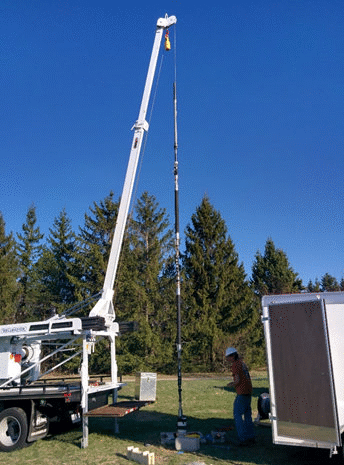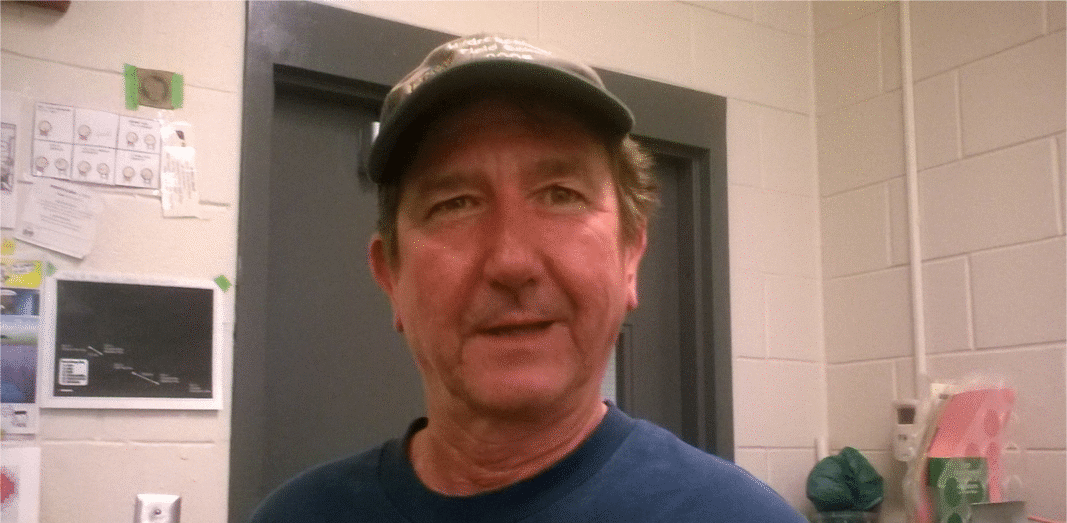
High Resolution Packer Testing:
for Reliable Estimates of Transmissivity
in Fractured Rock Boreholes
Packer testing is a common procedure fraught with challenges that can create uncertainty in the measured transmissivity (T) and hydraulic head (H) values. Obtaining reliable measurement of T is critical because of it's importance for informing site designs concerning dewatering, dam leakage, water supplies, and contaminated site remediation projects. It is also required for good estimations of hydraulic apertures and contaminant plume fluxes for determining risks to down gradient receptors. Estimations of aperture and contaminant flux require more precise T values compared to more traditional use of packer testing for aquifer hydraulic characterization.
Background
Traditional packer testing has progressed from the 50-year-old two straddle packer configuration for isolating a section of a borehole to obtain depth-discrete values of transmissivity (T), using a single pressure measurement between the packers, to multiple packer strings with pressure sensors between each packer set. More recently, a rigorous examination of straddle packer testing data improved understanding of the quality and accuracy of the T measurements obtained from straddle packer tests and it was found that a number of assumptions can often be violated thereby causing errors in T and associated hydraulic head (H) measurements.
This webinar will outline how these assumptions can be assessed and explain the potential error in T and H that can be expected. Methods will be presented that outline the suite of data collection that improves results and can validate the assumptions inherent in the models used to obtain T, as well as aid in understanding the borehole and site hydrogeologic conditions.
Case Study: Game Changer
Dr. Patryk Quinn will present a case study during the webinar where he selectively conducts multiple types of hydraulic tests between straddle packers based on complementary datasets including rock core analysis, geophysics, ALS temperature profiling, and FLUTe T profiling (FLUTe, Santa Fe, NM), to obtain a high-resolution T profile of the entire bedrock sequence. This approach allows focusing effort on the highest transmissivity zones thereby reducing the testing time, while remaining confident that no high T zones are missed. Ultimately, agreement between the different types of hydraulic tests gives greater confidence in the T values.
Finally, new packer testing equipment is presented that uses 4 packers instead of the traditional two packers, designed to contain the hydraulic stress within three contiguous packed off intervals. This new system shows promise for better T and H values and gives insight into vertical connectivity when the hydraulic stress passes between the packer zones.
Webinar Outline
- Review standard methods for straddle packer testing and discuss recent improvements including:
- The importance of measuring pressure in the open hole above and below the tested zone to monitor and correct for short circuiting for improved T estimates
- Learn the "stepped" slug testing approach to minimize fracture clogging effects
- Learn how to apply constant head step tests to assess the Darcian (linear) flow assumption
- Discuss the remarkable synergy between straddle packer testing and FLUTe profiling.
- Learn the main assumptions that should be assessed in both FLUTe profiling and packer testing, and how these methods complement each other.
- Discover multiple packer testing equipment that shows promise for better T and H values.
- Case Study
- See examples of work at a site where the selective packer testing approach was applied improving packer testing efficiency while obtaining a T profile of the entire hole.

| Fee: |
249.00 USD
Per Computer Site for our Members
(unlimited participants per site)
299.00 USD Per Computer Site for Non-Members
(unlimited participants per site)
199.50 USD Per Computer Site (unlimited participants per site)
when Members also register for:

(discount will be applied during checkout based on your cart)
Pay one site registration fee and an unlimited number of participants from your organization can attend at that site.
|
| Instructor: |
Patryk Quinn, PhD
|
| Handouts: |
Copy of Webinar Slides (pdf)
Record of Attendance Form (pdf)
|
| Duration: |
1.5 hour plus Q&A
(no restrictions on time limit for extra Q&A!)
|
Professional
Development: |
Earn 1.5 Professional Development Hours (1.5 PDH)
 |
A Record of Attendance Form is included free with each webinar for your record keeping and individual PDH verification. We ask your on-site coordinator to return the completed and signed copy of the Form to us following the webinar for (1) maintaining a separate copy as a service to attendees and (2) forwarding to NIU confirming attendance for those who order certificates.
Attendees may also order an official a Course Completion Certificate from Northern Illinois University for a small administrative fee. The Certificate is optional and may be ordered separately following the webinar to confirm your attendance and showcase the certificate on your office wall. Instructions for ordering certificates are given during the webinar.

* This webinar is eligible for the 'BUY THREE, GET THREE' discount; however ANY webinar series discount shown above cannot be combined with it.
Attendees will be invited to actively participate during this live and interactive on-line web seminar. Discussion is planned following the webinar for those who want to continue the session. Bring your questions to the webinar and present them to the instructor and other participants for exploring the best solution.
Instructors Bio
Patryk Quinn, PhD
 Dr. Patryk Quinn is a senior research hydrogeologist working with Dr. Beth Parker in the G360 Institute for Groundwater Research. His research focus is on improving transmissivity (T) measurements from straddle packer testing by refining test equipment and test procedures using a multiple method approach.
Dr. Patryk Quinn is a senior research hydrogeologist working with Dr. Beth Parker in the G360 Institute for Groundwater Research. His research focus is on improving transmissivity (T) measurements from straddle packer testing by refining test equipment and test procedures using a multiple method approach.
Dr. Quinn's area of research is focused on hydraulically characterizing fractured rock boreholes using synergetic combination of straddle packer tests and FLUTe transmissivity profiling to improve values of T for calculating hydraulic apertures using the cubic law to inform DFN models. He has had direct involvement in several dozen projects (sites) across North America resulting in many publications from his research.